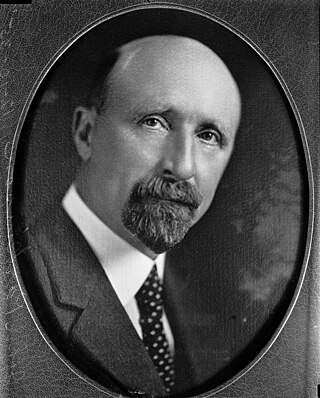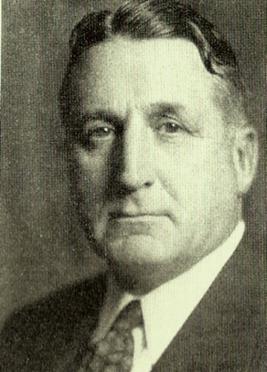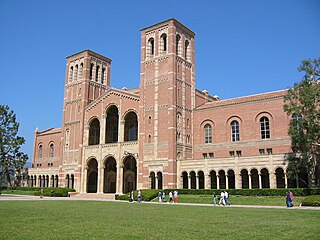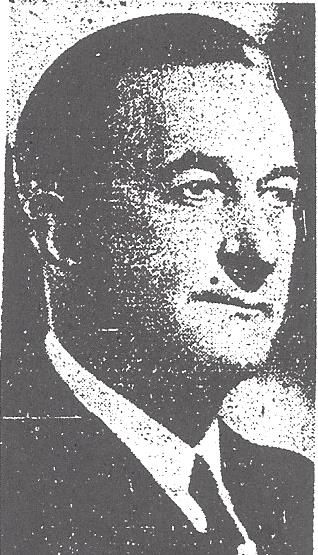
Westwood is a commercial and residential neighborhood in the northern central portion of the Westside region of Los Angeles, California. It is the home of the University of California, Los Angeles (UCLA). Bordering the campus on the south is Westwood Village, a major regional district for shopping, dining, movie theaters, and other entertainment.

Holdenby is an English village and civil parish about 5.5 miles (8.9 km) north-west of Northampton in West Northamptonshire. The parish population measured by the 2011 census was 170. The village name means "Halfdan's/Haldan's farm/settlement".

Wilshire Boulevard (['wɪɫ.ʃɚ]) is a prominent 15.83 mi (25.48 km) boulevard in the Los Angeles area of Southern California, extending from Ocean Avenue in the city of Santa Monica east to Grand Avenue in the Financial District of downtown Los Angeles. One of the principal east–west arterial roads of Los Angeles, it is also one of the major city streets through the city of Beverly Hills. Wilshire Boulevard runs roughly parallel to Santa Monica Boulevard from Santa Monica to the west boundary of Beverly Hills. From the east boundary, it runs a block south of Sixth Street to its terminus.

John and Donald Parkinson were a father-and-son architectural firm operating in the Los Angeles area in the early 20th century. They designed and built many of the city's iconic buildings, including Grand Central Market, the Memorial Coliseum, and City Hall.

Sumner P. Hunt was an architect in Los Angeles from 1888 to the 1930s. On January 21, 1892, he married Mary Hancock Chapman, January 21, 1892. They had a daughter Louise Hunt.

Gordon Bernie Kaufmann was an English-born American architect mostly known for his work on the Hoover Dam.
The Broadway was a mid-level department store chain headquartered in Los Angeles, California. Founded in 1896 by English-born Arthur Letts Sr., and named after what was once the city's main shopping street, the Broadway became a dominant retailer in Southern California and the Southwest. Its fortunes eventually declined, and Federated Department Stores bought the chain in 1995. In 1996, Broadway stores were either closed or converted into Macy's and Bloomingdales, some of which were sold and converted to Sears, including the Stonewood Center and Whittwood Town Center locations.
Arthur Rolland Kelly (1878–1959) was an American architect, primarily in the Los Angeles, California area. Arthur designed approximately five hundred homes and other buildings.
Holmby Hills is a neighborhood on the Westside of Los Angeles, California, United States.

The Janss Investment Company was a family-run, Los Angeles–based real estate development company that operated from 1895 to 1995.
Charles Edward Toberman was a real estate developer and stenographer who developed landmarks in Hollywood, California, including the Hollywood Bowl, Grauman's Chinese Theatre, El Capitan Theatre, Roosevelt Hotel, Bank of America Building, Grauman's Egyptian Theatre and the Hollywood Masonic Temple. Toberman, along with H. J. Whitley has been called 'the Father of Hollywood'.

Allison & Allison was the architectural firm of James Edward Allison (1870–1955) and his brother David Clark Allison (1881–1962).
Allen George Siple was an American architect, working in Southern California from the 1930s to 1960s.
James Dolena (1888–1978) was a Russian Empire-born American architect who designed many houses in Los Angeles, California.
Roland Coate was an American architect. He designed many houses and buildings in California, three of which are listed on the National Register of Historic Places.

Holmby Park is a public park in Holmby Hills, Los Angeles, California.
Owlwood Estate is a historic mansion in Holmby Hills, Los Angeles, California, United States. It was built in 1936 and designed by architect Robert D. Farquhar. Previous owners include actors Tony Curtis and Cher.

Ralf Marc (R.M.) Walker was an American department store executive.

7th Street is a street in Los Angeles, California running from S. Norton Ave in Mid-Wilshire through Downtown Los Angeles. It goes all the way to the eastern city limits at Indiana Ave., and the border between Boyle Heights, Los Angeles and East Los Angeles.

Retail in Southern California dates back to its first dry goods store that Jonathan Temple opened in 1827 on Calle Principal, when Los Angeles was still a Mexican village. After the American conquest, as the pueblo grew into a small town surpassing 4,000 population in 1860, dry goods stores continued to open, including the forerunners of what would be local chains. Larger retailers moved progressively further south to the 1880s-1890s Central Business District, which was later razed to become the Civic Center. Starting in the mid-1890s, major stores moved ever southward, first onto Broadway around 3rd, then starting in 1905 to Broadway between 4th and 9th, then starting in 1915 westward onto West Seventh Street up to Figueroa. For half a century Broadway and Seventh streets together formed one of America's largest and busiest downtown shopping districts.












